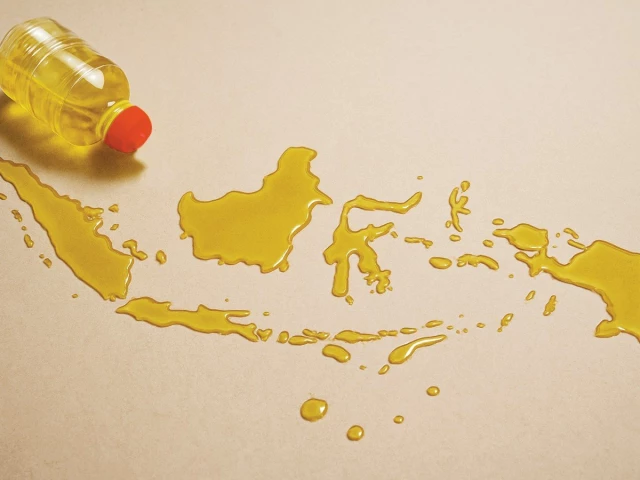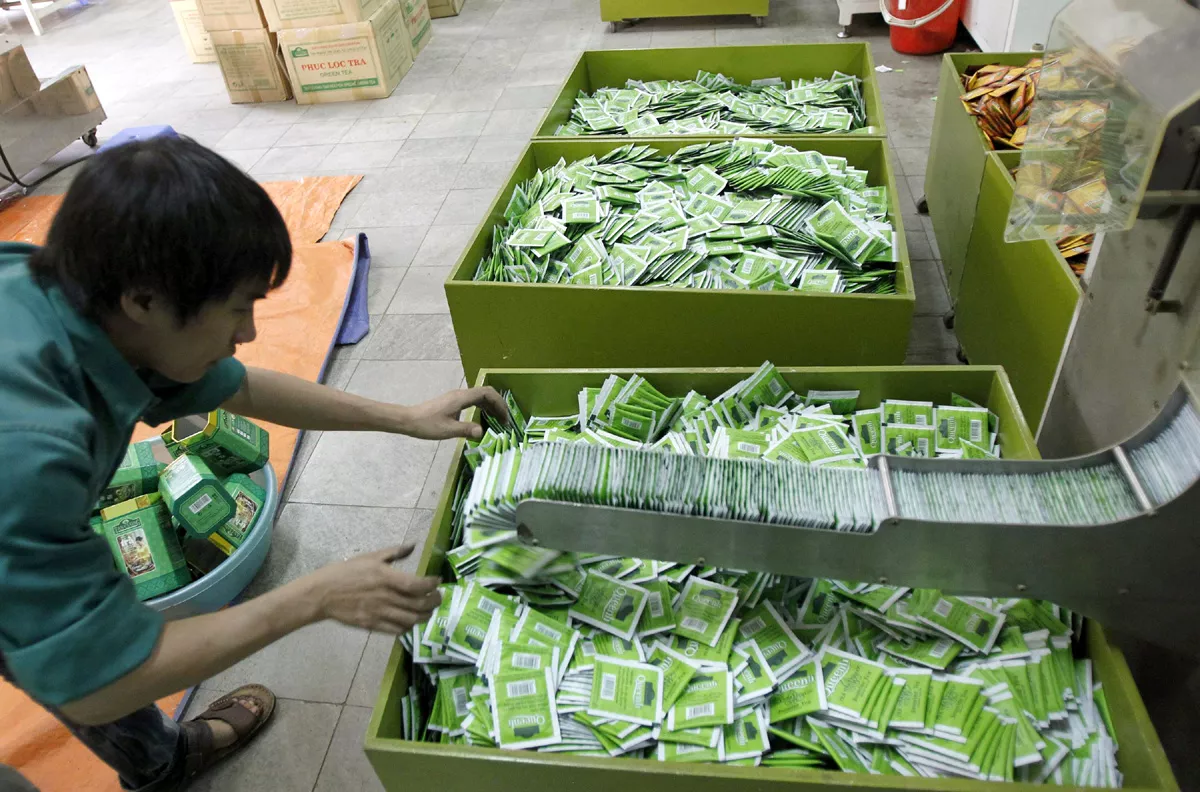Palm oil central to food security
Pakistan's reliance on edible oil reflects deep trade connection with Indonesia

In Pakistan's kitchens, snack factories and food industries, one ingredient quietly sustains, both in terms of affordability and availability, ie, Indonesian palm oil.
As the world's largest palm oil producer, Indonesia has become the backbone of Pakistan's edible oil market, playing a decisive role in keeping its fast-moving consumer goods (FMCG) sector running and ensuring the nation's food security in challenging economic times.
According to Eddy Martono, Chairman of the Indonesian Palm Oil Association (GAPKI), Pakistan's dependence on palm oil underscores the deep trade connection between the two countries. "Pakistan's edible oil market depends predominantly on palm oil and Indonesia is the backbone of that supply," Martono told The Express Tribune in an interview.
In fiscal year 2024-25, Pakistan's palm oil imports were projected to reach 3.8 million tons, accounting for over 75% of the nation's edible oil consumption. About 90% of this supply comes from Indonesia, while Malaysia provides the remainder, he added.
This dominance is not merely a trade statistic; it is central to Pakistan's economic stability. The edible oil sector supports thousands of jobs, particularly in local refineries that process crude and refined palm products into ghee, cooking oil, bakery fats and confectionery items.
"That reliability keeps biscuit, snack and instant food production affordable and ensures continuous operations at local refineries," Martono said. In a country where food inflation has been a persistent concern, the year-round availability and affordability of palm oil serve as a stabilising force for both the industry and households.
Palm oil's price competitiveness gives Pakistan an advantage when global commodity markets fluctuate. "Even as global markets shift between soybean and sunflower oil, palm oil typically trades at a lower rate, helping Pakistan stabilise retail prices when household budgets are tight," he added. With Pakistan's food inflation hovering around 28% in mid-2024, this cost advantage remains crucial for millions of consumers.
Beyond economic benefits, Indonesia's palm oil industry has evolved to align with international sustainability and environmental standards. The sector operates under the Indonesian Sustainable Palm Oil (ISPO) certification, which is mandatory for all growers and processors.
As of 2024, over 4.2 million hectares of plantations and more than 880 companies were ISPO-certified. In addition, many GAPKI member companies hold the Roundtable on Sustainable Palm Oil (RSPO) certification to meet the sustainability requirements of multinational FMCG brands that source products for Pakistan.
"Most of Indonesia's refining capacity is now under companies with 'No Deforestation, No Peat, No Exploitation' (NDPE) sourcing policies; this ensures traceability to the mill level, supplier verification and grievance mechanisms, meaning most palm oil entering Pakistan has already been filtered through strict sustainability protocols," the chairman said.
The results are visible. Satellite monitoring from Nusantara Atlas indicates that land conversion linked to palm oil dropped 9% in 2024, while Global Forest Watch reported an 11% reduction in Indonesia's primary forest loss, even during the El Nino year. This progress, Martono emphasised, reflects Indonesia's balance between economic growth and environmental protection, an approach Pakistan can look to for its own agri-based industries.
Global trends are also influencing how Pakistan plans its edible oil imports. "Price spreads between palm oil and soft oils remain highly volatile," Martono noted. "In early 2025, sunflower and soybean oil briefly traded below palm oil, but by April, palm oil regained a discount of roughly $50 per ton compared to soybean oil."
Such fluctuations push Pakistani refiners to maintain flexible procurement strategies, alternating between crude palm oil (CPO), refined bleached deodorised (RBD) palm olein and soft oils, to manage costs efficiently.
Policy shifts in producing countries also matter. Indonesia's B40 biodiesel programme, blending 40% palm-based fuel, is absorbing 1.2 to 1.7 million tons of crude palm oil annually, tightening export availability.
Martono suggested that Pakistan could draw lessons from this model. "Even a modest B5-B10 biodiesel programme in Pakistan could diversify energy sources, reduce fossil fuel dependence and save foreign exchange, without disrupting edible oil supply to households," he said.
On traceability, Martono highlighted that Indonesia's palm oil supply chain operates under a strict government and market-based monitoring framework. The SIPERIBUN national plantation database registers every plantation and mill, recording ownership and geo-location data for transparency.
"Almost all major refiners exporting to Pakistan publicly publish their mill lists and grievance logs online. For buyers, this means imports now come with traceable origin data that can be digitally audited, rather than taken on trust," he noted. "In many ways, palm oil is not just a commodity; it's a bridge between two economies," Martono said, adding "through responsible sourcing, technological transparency and sustainable growth, Indonesia aims to keep that bridge strong for Pakistan's industries, its households and its food security."





















COMMENTS
Comments are moderated and generally will be posted if they are on-topic and not abusive.
For more information, please see our Comments FAQ